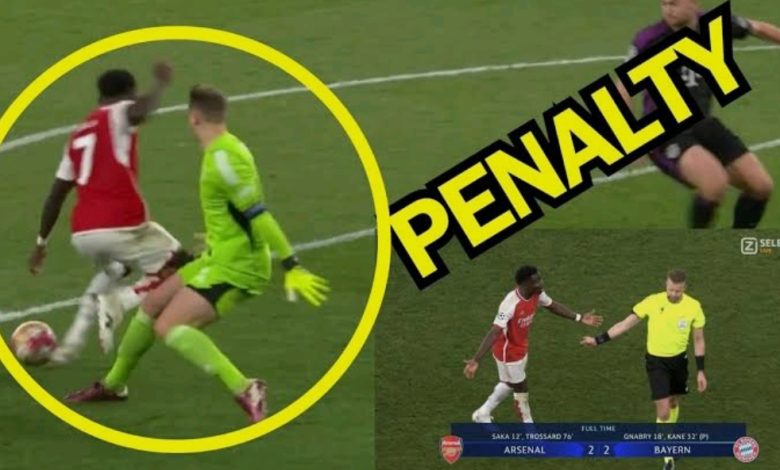In a significant development that has reignited discussions surrounding the use of VAR (Video Assistant Referee) in football, UEFA has taken the unprecedented step of publicly releasing audio recordings related to a contentious penalty incident involving Arsenal and Bayern Munich during a crucial Champions League match.
The incident occurred in the closing minutes of a highly anticipated encounter, sparking widespread debate and scrutiny from fans and experts alike.
The match between Arsenal and Bayern Munich was poised to be a thrilling showdown between two European powerhouses, with both teams vying for victory in a tense contest.
As the game approached its conclusion, excitement mounted among spectators, only to be interrupted by a moment of controversy that would capture the attention of the footballing world.
Amidst the action, a challenge inside the Bayern Munich penalty area prompted vehement appeals from Arsenal players and fans for a penalty kick.
The referee’s decision not to award the penalty ignited heated debate and speculation, leaving many questioning the fairness and transparency of officiating decisions.
UEFA’s decision to release the audio recordings from VAR offers unprecedented insight into the decision-making process that unfolded in real-time.
The transcripts provide a behind-the-scenes look at the intricate deliberations and judgments made by referees and VAR officials during the crucial moment.
Listeners are transported into the heart of the action, experiencing the emotions and pressures faced by officials as they assess the incident and review video footage frame by frame.
The recordings capture the intensity and scrutiny that accompany pivotal decisions in elite football, highlighting the gravity of each call and its potential impact on the outcome of the match.
Following the release of the audio, reactions from fans and pundits vary widely.
Some view the recordings as vindication, seeing them as validation of their team’s grievances and a call for greater transparency in refereeing decisions.
Others, however, remain skeptical, expressing doubts about the efficacy and reliability of VAR technology.
Regardless of individual perspectives, the release of the VAR audio has sparked a renewed debate on the role of technology in football officiating.
As the sport continues to embrace innovation and adapt to modern advancements, questions surrounding fairness, accuracy, and accountability will remain central to discussions about the future of the game.
